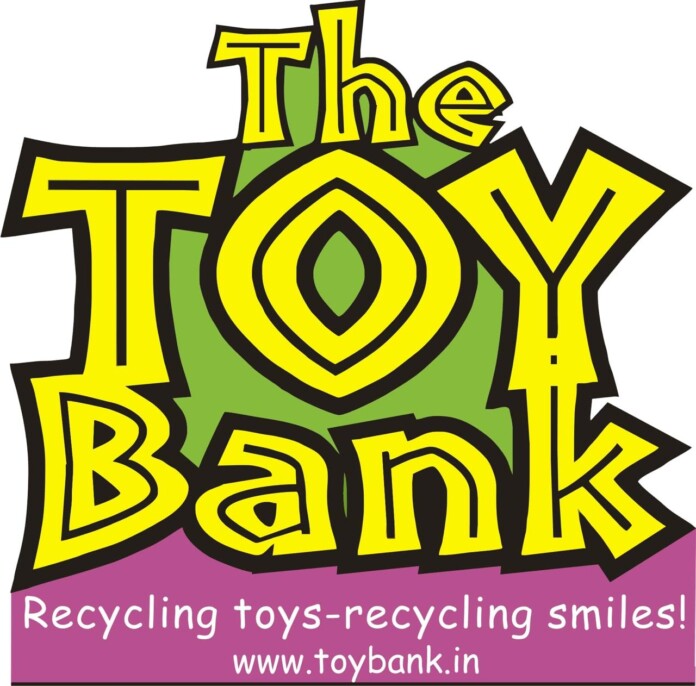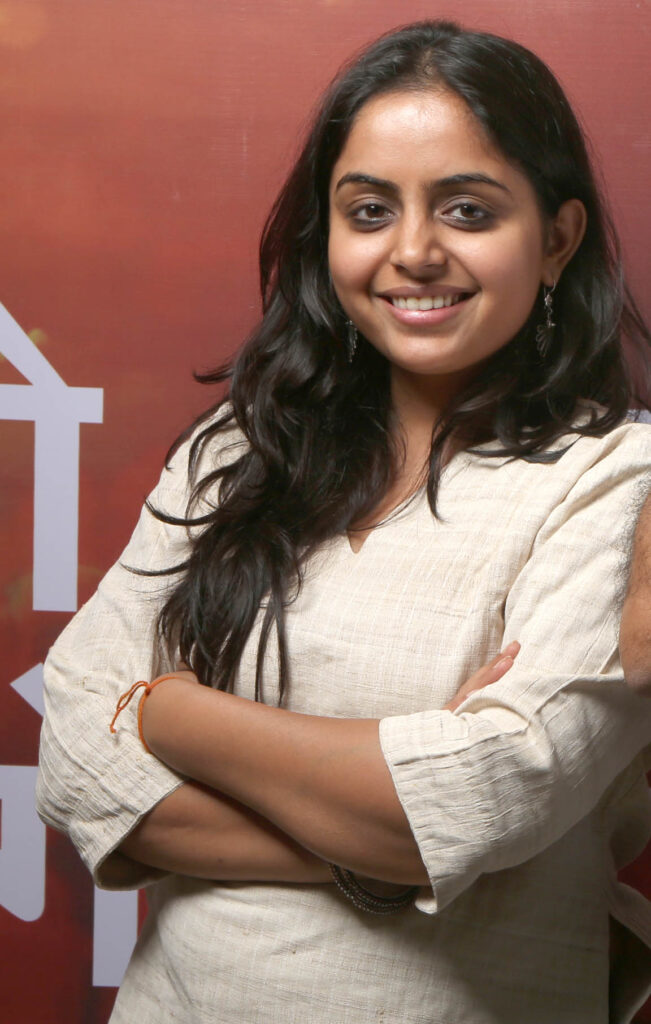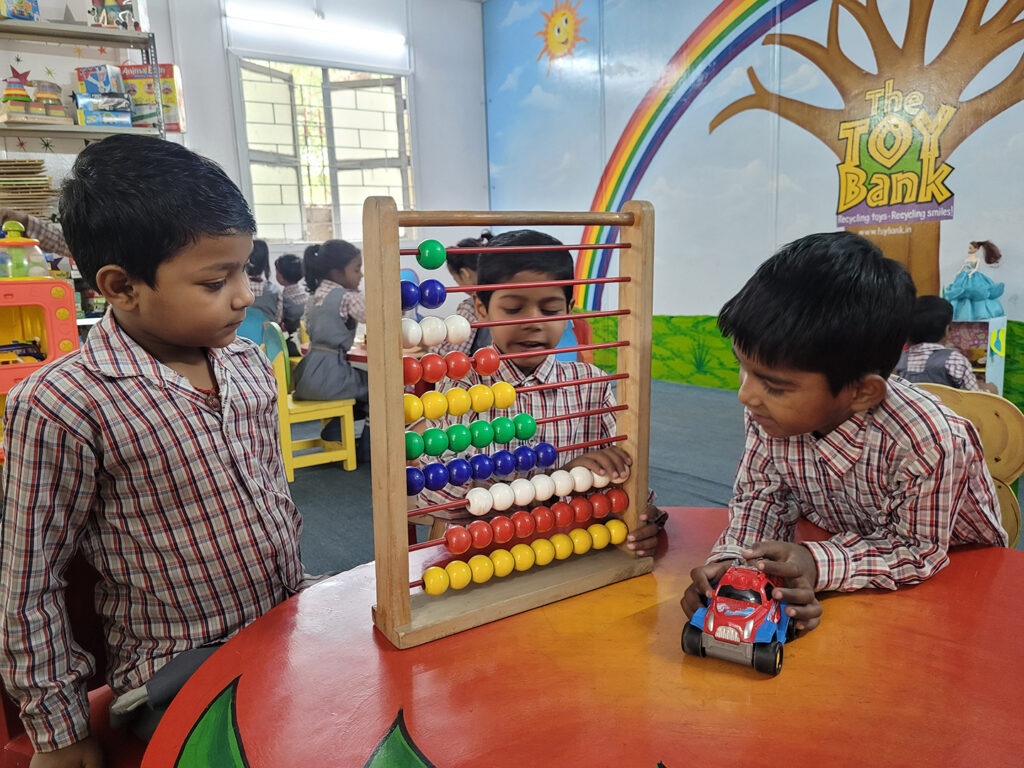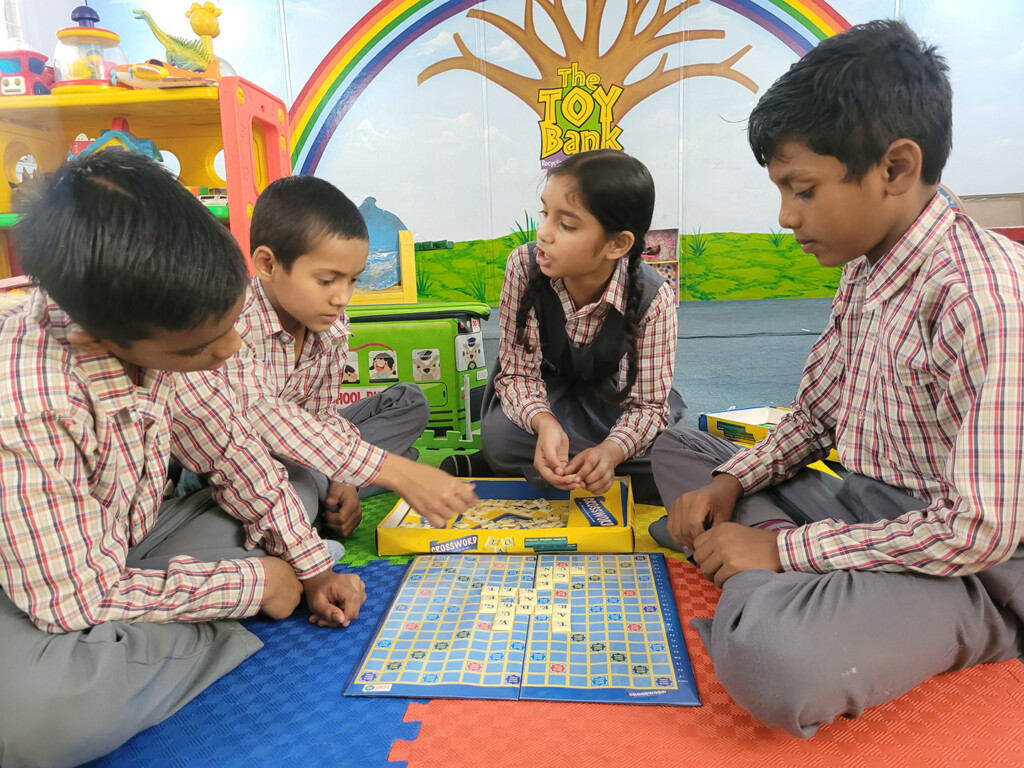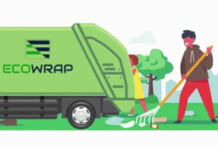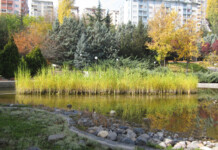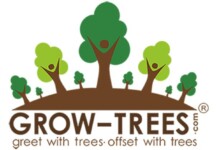In the Indian toy industry, organized toy manufacturers account for only 10% of the total production, while the remaining 90% comes from unregulated channels and mostly consists of plastic-based products. Affluent kids dispose of their used plastic toys which go into dumping yards. Kids from economically weaker sections hardly grow up playing with toys and learning aids.
Started in 2012, the Toy Bank, a non-profit organisation, offers a real solution to this problem by collecting used toys and distributing them to those in need across India. The Toy Bank works on a three-fold strategy: “Collect – Recycle – Redistribute.“
It collects toys from 25 collection centres in the Delhi NCR region as well as toy collection drives in private schools and corporate offices. The Toy Bank has partnered with 150 private schools in the NCR region to organise toy collection drives and workshops. The workshops aim to teach children a new way of dealing with waste and instil the values of sharing and caring.
These toys are then sent to The Toy Bank’s sorting centre, where they are refurbished, checked for reusability and assembled into age-appropriate and gender-neutral toy kits. The toy kits are further distributed in rural and urban areas, including tribal areas of India, to create toy libraries and safe playrooms for children from economically deprived backgrounds. The impact is direct, local and profound. They enable everyone involved to deal with waste in a new way and embody the values of sharing.
The Toy Bank intends to support the Delhi government’s “Sarva Shiksha Abhiyan” program,” which aims to promote the Right to Education. Education has evolved beyond the definition of memorization and should now focus on holistic development. The toy libraries and safe playroom focus on improving basic learning i.e. language, numeracy, environmental awareness and life skills through the play-way method. The Toy Bank also focuses on building the capacity of government teachers and trainers to deliver engaging play sessions using toys and other learning aids to enhance basic foundational learning of students through the play-away method.
So far, The Toy Bank has collected, refurbished, and sent over 1.54 million toys to 26 states and 4 union territories of India. This effort has led to the creation of 5,425 Toy Libraries, benefiting 5,29,201 children. Additionally, by extending the lifespan of these toys, The Toy Bank has managed to save 386,500 LBS of carbon emissions.
By upcycling, recycling and reusing, The Toy Bank can keep waste out of landfills and reduce waste by keeping things in circulation. These effective practices turn discarded items into valuable resources, reducing the burden on landfills and the impact on the environment.
Indian Railways
The Toy Bank’s impact expanded by leveraging the Indian Railway network. Distribution of toys across India became feasible. It enabled the Bank to reach remote areas and forge extensive partnerships with other NGOs.
However, the real game-changer was the strategic decision to shift focus towards establishing toy libraries. This move broadened the project’s reach and deepened its impact by ensuring continuous access to educational materials and toys. It fostered environments that supported ongoing educational engagements rather than just one-time donations, creating a lasting impact. The Toy Bank runs several innovative programmes aimed at integrating educational toys into the learning and development process of children. They include:
Anganwadi Toy Connect Programme
Recognising the significance of early childhood education the Toy Bank created Toy Libraries in Anganwadi centres to ensure the child’s development takes place through early stimulation through play-way methods. The Toy Libraries increase access to storybooks, rattle toys, educational toys and much more to involve the children in physical and mental exercise.
This program has impacted 7,132 students through 172 Toy Libraries. The regions covered so far are
Ranchi (Jharkhand), Behror (Rajasthan), Jhunjhunu (Rajasthan), Neemrana (Rajasthan), Udaipur (Rajasthan), Bilaspur (Himachal Pradesh), Mandi (Himachal Pradesh), Bokaro (Jharkhand), Chapra (Bihar), Banka (Bihar), Nagaon (Assam), Delhi and Jawhar (Maharashtra).
Safe Playroom Programme
The Toy Bank built safe playrooms in municipal schools in New Delhi for children from the economically weaker section. A well-equipped playroom with appropriate child-friendly infrastructure, age-appropriate toys, and board games enables every child to participate in free play and recreational activities. The playroom contains a variety of toys, such as board games, puzzles, musical games, soft toys, life skill games, storybooks, and other educational toys, to involve children in physical and mental exercise. It focuses on providing holistic childhood development through play.
The Toy Bank has also developed a play curriculum with play and learning modules across all the playrooms. The play curriculum focuses on building life skills, language skills, numerical abilities and elements that make children more aware of their environment and social well-being. It provides specific guidance to the teachers in selecting appropriate toys and play materials.
The multi-purpose modules incorporate mathematics, life science, health and language literacy into children’s free play by working on all sensory, fine and gross motor skills, social, emotional, personal and language. The Safe Playroom Programme is functional in 7 Municipal Schools in Delhi. It impacts 3,000 children from nursery to fifth grade by focusing on their foundational learning through the play-way method.
The bank promotes gender neutrality and foundational educational skills among children. It includes kitchen sets and dolls, breaking down barriers and fostering inclusive play environments. This impactful work is part of a broader educational strategy that integrates play with learning, aiming to bridge the educational gaps that often exist in underprivileged sections of society.
Through its comprehensive approach to child development, environmental sustainability, and community engagement.


